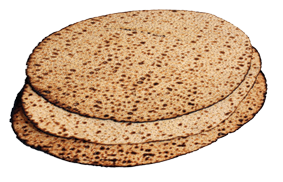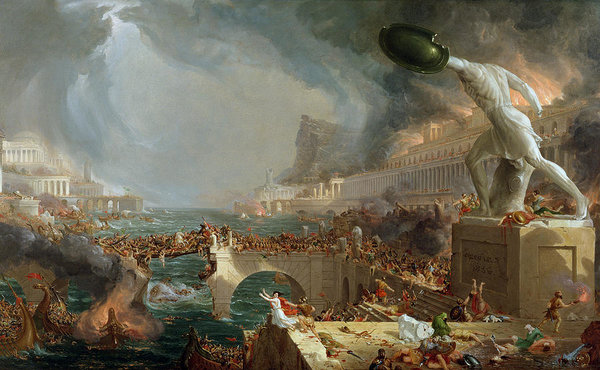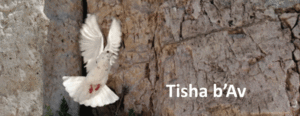We all know about the 4 questions.
Below are the many fundamental questions and fascinating answers that ‘fill in the dots’…
The following written content from Rebbe Menachem Mendel Schneerson, translated by Rabbi Chaim Forer

Why is the prayer that we recite at the seder called, “Hagada?”
The seder should be conducted in a question – answer format based upon the verse in the Torah, “and you shall tell (Vahegadata) your son.” From this it’s evident that the seder (i.e. the mitzva to relate Jewish experience in Egypt and the subsequent redemption) begins with the section, “Ma nishtana…..” where the child begins to pose his questions to his parents.
What was the divine intention in the exile in Egypt?
The exile in Egypt is referred to in scriptures as “kiln of iron.” Just as a kiln refines silver and gold of their impurities so too the exile in Egypt was intended to refine the Jews of their impurities – their attitudes and beliefs not consistent with Torah and One G-d and their inclination to worldly pleasures and values (called “evil inclination” in Jewish literature)
Did the Jews succeed in refining themselves while still in the exile of Egypt?
G-d wanted Jews to refine themselves “from below,” that is without divine intervention. The Jews didn’t completely succeed. The evil inclination remained active, albeit somewhat subdued, in their hearts. For this reason G-d had to intervene, visiting upon the Egyptians 10 plagues and redeeming the Jews from Egypt thru Divine Revelation, “with a strong arm.”.
Before we begin the narrative (see #1 above) we recite, “this poor man’s bread that our forefathers ate in the land of Egypt.” The Hagada later clearly indicates that the matzo we eat at the seder represents and is symbolic of the matza that the Jews ate after they left Egypt, not in Egypt. Why do we refer to it as “…bread….at in the land of Egypt?
The Jews physically left Egypt. Psychologically and emotionally they remained in Egypt – in their hearts they were attached to the attitudes and culture of Egypt.
We are required to conduct ourselves at the seder like kings and queens since we are celebrating our liberation from the bondage of humans. Why do we, prior to the ma nishtana, refer to ourselves as “slaves?” Why do remind ourselves that we are “here” and not in the Land of Israel? Slavery and diaspora contradict the atmosphere of freedom that should rule the seder?
Although the redemption from Egypt was not permanent it was the birth of the Jewish nation. Inherent in our birth and therefore in the redemption from Egypt is our future redemption which is permanent. See #9 below.

Why do we make the above statements (‘now we slaves…..” “this poor man’s bread….”) before we begin the narrative and not within the narrative?
We want to clear up some confusion so that the child can relate to the exodus from Egypt. These statements answer the child’s skepticism about the accomplishment of the redemption from Egypt.
Why was the redemption impermanent if G-d Himself redeemed us? G-d is all powerful. What prevented Him from redeeming us forever?
Why are there poor Jews? Each Jew left Egypt with great wealth. We see, today, poor Jews.
We failed (see above, #3) to completely refine ourselves and did not merit nor were prepared for a perfect redemption. Our failure to serve G-d consistently and perfectly is the reason we remain in exile subject to natural law. If all Jews were wealthy and good this would be evidence of G-d’s supernatural providence. Thus, there are poor and evil Jews and we remain in the diaspora ruled by human beings rather than by G-d.
Why do we praise G-d for saving us from our enemies in every generation – are we not more deserving than our wicked enemies? Why must G-d redeem us with “His strong arm?” G-d rules the world with justice, which is embedded in nature itself. Are we so lacking in merit that it’s “just” for our enemies to destroy us, necessitating G-d’s miracles to prevent our destruction? (The Talmud explains that G-d does not perform unnecessary miracles which suspend the laws of nature. He prefers that ‘nature take its course’ having built into its laws natural justice).
We failed to accomplish our task during the exile of Egypt, Therefore the Quality of Justice (so to speak) argues that we have forfeited our right to existence. Thus, G-d must act (so to speak) against the arguments of Justice.
Why didn’t we leave Egypt in a natural manner, without miracles? G-d decreed exile for 400 years. The 400 years expired on the eve of the first Pesach. Why was it necessary for G-d to redeem us from Above?
See above. The decree of 400 years was based upon the assumption that we would complete our mission in Egypt (to refine ourselves perfectly). Since we failed, if not for G-d’s intervention we would remain in exile until we succeeded to perfectly refine ourselves.
“If He had brought us into the Land of Israel and not built for us the Temple (Beis Hab’chira) it would have been sufficient.” This is the last of the 15 “advantages (maalot)” that is mentioned in the “dayeinu” section. The next paragraph repeats the 15 and ends, ” and built for us the Beis Hab’chira to atone for all of our sins.”

What does the building of the Temple have to do with the redemption and exodus from Egypt? Once we reached the Land of Israel the exodus has concluded. The Temple was built 420-430 years after the Jews entered the Land of Israel.
Why is the Temple referred to as “Beis Hab’chira” and not the common term, Beis Hamikdash? “B’chira” means “free choice.
Free Choice (b’chira) is a metaphor for the unity and identity of Jews and G-d.
“Israel and the Holy One Blessed Be He are one entity.” In the case of a human being a truly free choice can only be made when there are two or more options and none of them offers a reason to choose it that is more compelling than the reasons offered by the others. When the person nonetheless chooses one option his choice is free because he has not been forced by reason to choose..
Let’s apply this metaphor to G-d. G-d creates worlds ex nihilo (described in great detail in Chasidic literature) because He has a profound intention and purpose in creation. (The purpose precedes creation in cause and effect terms). G-d is a true Oneness, not a composite oneness (like an apple that is “one” that can be divided over and over). Unlike a human being who has options from which to freely choose (see above paragraph) there are no options that exist within G-d since there is only Him. His “purpose” is (identical with) Him.
What is that purpose? It is the souls of Jews (and Torah). Therefore, the souls of Jews and Torah are truly one with Him.
Question 9 (b) has been answered.
9 (a) can now be answered. The earlier sections of the Hagada describe the unworthiness of the Jewish people. Because we were unworthy it was necessary for G-d to redeem us via miracles, overruling the arguments of Justice against redemption. This explanation represents our perception “below.”
The 15 advantages ending with “and He built for us a Beis Hab’chira” reveal that the Jewish people are truly one with G-d and redemption is automatic and inevitable. This is the perception from “Above” (i.e. G-d’s viewpoint).
Our sages’ require that we begin the Hagada by mentioning our former disgrace (that we were once slaves and that our forefather, Abraham’s father, worshipped idols) and conclude with praise (that we received the Torah and merited to inherit the Land of Israel).
The Rebbe has provided a 2nd explanation of our sages’ requirement: the disgrace is that we had to be redeemed in a miraculous manner because we were not worthy in our own merit. The “praise” is that the souls of Jews are truly one with G-d and the redemption which expresses that unity is automatic and inevitable.
From all the above it’s understood that the requirement to feel liberated during the seder is fulfilled when we achieve some sense of our closeness to G-d. The Hebrew word for Egypt is “Mitzraim” which means “limitation.” True liberation means that we ascend above all limitations including spiritual ones, in our feeling and appreciation, and unite with G-d so that we are one being with Him – not two things that are united, like body and soul, but literally one simple being (i.e. Him).. This will truly be fulfilled only with the coming of Moshiach.
A note from Rabbi Chaim Forer
Sarah and I wish everyone a kosher and frielicher Pesach. Hopefully, we will meet, even before Pesach, in Jerusalem where we will offer the paschal sacrifice!

“This poor man’s bread that our forefathers ate in the land of Egypt. All who are hungry come and eat……”
B”H
The Hagada begins with, “This poor man’s bread that our forefathers ate in the land of Egypt. All who are hungry come and eat……”
We are all sitting at the table. Guests have already arrived and we are not returning to shul to invite others. If so, the Hagada’s invitation, “all who are hungry come and eat” is out of place..
According to Jewish Law we must conduct ourselves at the seder like free men and women, like kings and queens. For this reason we recline and set the table with our best dishes and cutlery (some have the custom to not pour their own wine; others pour for them). Doesn’t it seem inappropriate, at the beginning of the reading of the Hagada, to mention that matzo is “poor man’s bread” and that “our forefathers ate it in Egypt?” Isn’t it incongruous that we mention that “now we are slaves” and “now we are here” (not in Israel but still in the diaspora)?
Our sages require that we begin the Hagada with mention of our former humiliation (as slaves in Egypt as well as Abraham’s father’s idolatry). Perhaps the above mentioned incongruities fulfill this requirement?
“Now we are slaves” is read before we begin the section of the Hagada that is the narrative of our sojourn in Egypt and subsequent miraculous redemption. If this statement fulfilled the requirement to mention our former humiliation it would be included in the narrative itself, not before it. Furthermore, the narrative must proceed in a question and answer format starting with “ma nishtana” which comes after “now we are slaves.” The requirement to mention our humiliation can only be fulfilled within the narrative,following the 4 questions, not its introduction. Finally, the requirement is to begin the narrative with mention of our former, not present, humiliation. “Now we are slaves” and “now we are here” describe our present situation, not our past one.
.
We are compelled to answer that the paragraph “all who are hungry…” although not part of the narrative, is a necessary introduction to the narrative that answers fundamental questions that the “child” has concerning the Exodus and the Jewish experience in Egypt. Without answers to these questions he’s not prepared to continue the seder and to appreciate the story in all its details.

ADDITIONAL QUESTIONS
The Hagadah states prior to the “ma nishtana” and prior to the beginning of the narrative, “this poor man’s bread that our forefathers ate in Egypt.” Near the end of the narrative we ask, “this matzo that we eat, why? Because the dough of our forefathers didn’t have a chance to leaven before …the Holy One became revealed to them and redeemed them. As it’s written, ’and they baked the dough that they had taken with them when they left Egypt…’” The matzo we eat at the seder symbolizes the matzo our forefathers ate after they had left Egypt.
The Hagada states, “we were slaves to Pharaoh…and if Hashem hadn’t taken us out… we and our children… would still be slaves…” G-d’s original decree was that we be in exile for 400 years. After 400 years the degree expires and we are free. What does the Hagada mean by saying, “if Hashem hadn’t taken us out {after 400 years}…. We and our children …would still be slaves…?”
We know that we were enslaved to Egypt for only 210 years. If so, the degree hadn’t expired and it was necessary for G-d to redeem us with a “strong arm” thru supernatural intervention and not thru natural means due to the decree issued at the bris bein habasarim. Perhaps this answers the above question? It doesn’t. The above answer is incorrect. G-d calculated the “400 years” from the birth of Abraham’s son, Isaac, which was 400 years, to the day, before the Exodus on the 15th of the Hebrew month Nisan (Pesach). Another difficulty: the Hagada states, “we and our children and their children… would still be slaves to Pharoah in Egypt,” in contrast to G-d’s promise to Avraham that “the fourth generation will return here” (after 400 years).

2
The Hagada states, “and it {G-d’s promise to Abraham} that stood that not only one… but in every generation our enemies arise to annihilate us.” We believe that G-d is just. If our enemies are more righteous than us we understand why we should praise G-d for saving us from them. But, they are, in fact, wicked. If so, how is it possible that they can annihilate us so that we must praise G-d for “saving us from their hands?” We are more righteous than they and so we should be saved from them “naturally.” When we praise G-d we do so for miracles (by definition, super-natural). Saving us from evil enemies is ‘natural” justice.
Furthermore, our sages teach that the world was created in order that Jews fulfill Torah and its commandments. Surely, a perfect and supreme Deity has a profound intention in His creation? This purpose is not revealed because G-d desires that we possess and exercise Free Choice. Without Free Choice there can be no reward and punishment. If so, G-d must save us from “those that arise to annihilate us” or the purpose of His creation cannot be realized.
(Actually, the Egyptians did not stand wish “to annihilate us.” The Hagada informs us that “Pharaoh’s decree was on the males only.” In contrast, “Lavan sought to destroy us entirely’” as did Haman, in the days of Ahaseurus when the King’s decree applied to “all Jews from the youth to the elderly, children and women.”)
We conclude the narrative with mention of 15 wonderful gifts that G-d bestowed upon us. “If He had taken us out of Egypt….. dayeninu” is the first one mentioned. The last one is “and He built for us the Bais Habchira (Holy Temple) to atone for all our sins.” The words, “bais habchira” mean, literally, “the house of free choice.” It is the only one of the 15 for which a reason follows: “to atone for all of our sins.”
If the Hagada finds it necessary to state a reason for building the Temple isn’t there one that is more obvious? The principal purpose of the Temple is the revelation of G-d’s presence in the Holy of Holies (the innermost room of the Temple which the High Priest entered only on Yom Kippur).
Why does the Hagada call the temple “Bais habechira” (House of Free Choice) and not its more common name, Bais Hamikdash (House of Sanctification)?
Finally, what does the final attribute have to do with the Exodus and the Hagada? All the other 14 attributes have to do with the consummation of the exodus (arriving in Israel). Until the entry into Israel the exodus was incomplete. But the last one seems irrelevant to the exodus since the exodus is concluded when we enter the Land of Israel. The building of the Temple occurred many years later.
Explanation
Prior to reading the Hagadah the child has no knowledge of the details of the slavery, miracles and wonders of the redemption. He has several questions that must be answered before we can begin reciting the Hagada from “we were slaves to Pharaoh in Egypt.”.
Why is the redemption from Egypt not everlasting? If we were redeemed by a human being we would understand that a human’s achievements are imperfect. But G-d, who is everlasting, perfect and true, redeemed us from Egypt. Shouldn’t His redemption be permanent? Why are we still in exile, an exile in which “in every generation there arise up against us those who would annihilate us?”
We left Egypt with “great wealth” as promised by G-d. Why, today, are there poor Jews?
We are commanded “you shall tell your son.” There are 4 sons at the seder including a “wicked son.” Where does the wicked son come from? The wicked Jews were not saved from the 10 plagues. They died during the 9
3
th plague of darkness. The wicked son sitting at the seder is not different from those that died in Egypt since we tell him, “if he was there he would not have been redeemed.” The redemption from Egypt is the birth of the Jewish nation and our history as a peolpe begins with its growth from infancy at the time of the Exodus. If at birth there was no evil within the Jewish character how did it appear later?
These questions are quite (or, should be) disturbing. We’re supposed to experience freedom and liberation. “In every generation one is obligated to see himself as if he went out of Egypt.” The Torah is the “Torah of truth” and one must conduct himself with a true feeling of liberation. How is it possible to see oneself “as if he too had gone out of the subjugation of Egypt” when he finds himself in exile and in a situation in which in every generation there “arise against us (those who wish) to annihilate us” and when some Jews are impoverished and even wicked?
To clear up this confusion the Hagada begins with “this poor man’s bread.” The matzo that the Jews ate when they left Egypt is referred to as matzo that “our forefathers ate in the land of Egypt” in order to emphasize that the manner in which we left Egypt was imperfect. The Jews were still there, psychologically and emotionally, even after they had left. The exile and acculturation to Egypt’s values remained within the Jew.
This is explained at the beginning of the Hagada when we invite “all who are hungry…all who require.” Poverty and exile persist because our forefathers remained – in their hearts- in the land and culture of Egypt. At the birth of our nation the impurity of Egypt was still within us.
If Egypt remains within us what has the Exodus accomplished? If we are not truly free why do we conduct ourselves at the seder as free men? The Hagada continues that even though “now we are here” nonetheless “next year (we’ll be) in the land of Israel.” Although “now we are slaves” next year “we’ll be free.” Our liberation from Egypt is in potential the liberation from our present exile (the final redemption is implicit in the redemption from Egypt which was the first redemption). Although “potential” is not “actual” it is nevertheless real and inevitably leads to actual redemption.
Therefore, we can fulfill the obligation to retell the story of the Exodus this night in a manner of “one (who) is obligated to show himself as if he now is leaving Egypt.” Through retelling the story of the Exodus like one who sees himself as if he is now leaving Egypt he leaves his present circumstances, emotionally, and becomes (“next year”) a “free man.” It’s stated that the entire passage of time from the first redemption until the future redemption thru Moshiach is one long exodus from the exile of Egypt.
This central point, brought at the beginning of the Hagada, resolves the questions that disturb the inquisitive child and who, as a result, is not ready to begin the seder. The answer is repeated in the course of the narrative of the Exodus that follows ‘ma nishtana.’
There is a well-known medrash that relates that G-d asked our forefather, Abraham, at the “bris bein habisarim (covenant between the pieces”), “which (one of the two) do you choose (for your descendants): descent into gehinom (hell where the soul is purified before it ascends to the World of Souls) or descent into exile?” He (Abraham or G-d –two opinions, naturally) chose exile rather than gehinom.
We see from this medrash that exile is compared to gehinom – like gehinom it, thru suffering, purifies and atones.
The sin for which we require atonement is the first (and source of all) sin, the sin of the Tree of Knowledge which caused G-d’s Presence to depart our world. The first sin was followed by another six sins (violated by mankind in general). Each one caused G-d’s Presence to depart a bit further. Abraham was the first to draw G-d’s Presence back toward our world. For this reason it was revealed to him that the restoration of G-d’s Presence is conditional upon the atonement for our sins during the exile of Egypt.
4
Had we merited, the exile of Egypt would have been the sole exile. The redemption from Egypt would have been perfect and “neither exile nor the angel of death would have ruled them” (Midrash) just as before the first sin.
In actuality, since the exile in Egypt did not bring about a complete purification and atonement it was necessary that, “HaShem took us out from there with a strong arm” – in defiance of the Quality of Justice. The Quality of Justice argues that the Exodus and redemption are not justified since the exile didn’t accomplish a complete purification and atonement restoring us and the world to its original condition. According to the explanations of Chasidus the reason that the redemption from Egypt was in the manner of “the nation escaped” is “because the evil in the souls of Israel was still in its full strength in the … heart.” The redemption wasn’t due to the fulfillment of our mission in Egypt but because “the King of the King of Kings, the blessed Holy One, revealed Himself.” This revelation awakened the quintessential Jewishness of Israel so that the “spirit of folly” that “conceals the truth” was no longer capable of fooling them that regardless of their actions they remained united with G-d. This is what caused “the nation (to) flee.” In other words, the Yidden took advantage of this “awakening from Above” to escape their evil inclinations that would surely return once the revelation was spent.
Therefore the Hagada states, “if HaShem had not taken our forefathers from Egypt we, our sons and the sons of our sons would be enslaved to Pharaoh in Egypt.” If the redemption had not been due to G-d’s “strong arm” the exile of Egypt would have extended until our elevation and purification were complete. Although the decree of exile was 400 years, Egypt was rooted in their souls and we were, therefore, unable to extricate ourselves from its exile. G-d’s “strong arm” was in defiance of the Quality of Justice that argued that the Jewish nation had not fulfilled the purpose of the exile in Egypt. This is why in every generation we praise G-d for saving us. True, the nations that seek our annihilation are not better than us but we have not fulfilled our ultimate purpose. The Quality of Justice is right, from its perspective, to argue that we have forfeited our claim to existence.
Now we understand (a) how an evil son can exist, after the redemption, and (b) why there can be a situation that “in every generation there arise against us those who wish to annihilate us” but this is averted because G-d “saves us from their hands.” As long as the ultimate purpose of exile, the perfect elevation, is not accomplished Jews are not yet purified of evil. There can be a son who is wicked and the Quality of Justice argues on behalf of those that “arise to annihilate us.”
How is it possible that Jews could be so sunken and invested in the impurity and evil of Egypt that without G-d’s help they were unable to leave? The Hagadah answers this. “And the Egyptians caused us evil.” The phrase “caused us evil” is more accurately read, “caused us to be evil.” We became evil thanks to our acculturation in the lowly Egyptian culture.
(Why were the Egyptians punished for enslaving the Jews? Didn’t they fulfill G-d’s decree that “they shall enslave them and cause them to suffer.” One answer is that they were punished because they enslaved us more cruelly than necessary to fulfill God’s degree.)
Notwithstanding the above explanations the exile in Egypt didn’t accomplish the required elevation and purification. What, therefore, is so special about the Exodus and its narrative? True, the final redemption is possible thanks to the redemption from Egypt but how can we celebrate freedom now when we remain enslaved to our evil inclinations? In answer the Hagadah “concludes with praise:” “and He built for us the Bais Habchira (House of Free Choice) to atone for all our sins.” The true concept of Free Choice is precisely when the choice is made not for a reason or cause (which ‘compels’ the choice) but by the free choice of the one who chooses. God chooses the Jewish people before He has committed Himself to creation. In His essence, beyond His supernal revelations, there is only Him. When He chooses the Jewish people, a consequence of which is creation, His choice is truly free. Our souls are, therefore, essentially free – we celebrate G-d’s choice of Jewish souls through which we achieve perfect atonement.
From G-d’s perspective “Esau is a brother to Jacob;” neither have significance before G-d Himself. Yet, He
5
freely chooses Jacob: “and I love Jacob and hate Esau.”
In other words,(G-d’s) Free Choice is a metaphor for the unity and identity of Jews and G-d.
“Israel and the Holy One Blessed Be He are one entity” (due to the truly free choice He makes, not compelled by reason since the choice takes place in His essence where there is only Him). “Esau is Jacob’s brother” and equal. “Nonetheless, I love Jacob and hate Esau.“.
This is the meaning of the exile and redemption. In our perception it is only “with a (G-d’s) strong arm” raised against the Quality of Justice that we are redeemed. Had we remained one additional instant in Egypt we could not have been redeemed. “Esau is Jacob’s brother.” “These…and these…worship idols.” In truth, though, the redemption comes from the essence of G-d who freely chooses (the souls of) Israel because they are one entity with Him and therefore “He is unable to exchange them for another nation.”
This explains how through the Bais Habachira our sins are atoned (not simply excused and forgiven). In the progressive series of causes and effects that leads from nothingness to creation where the unity of Jews and G-d is not so revealed – like a child who is separated from his father even though they share the same essence – and sin penetrates and stains, atonement is accomplished through exile and suffering. Above creation and its causes, within the essential unity of Jews and G-d, the Free Choice itself atones “for all our sins.” From there the atonement and purification is accomplished automatically for sin has no significance there. For this reason the Hagadah offers the reason “to atone for our sins” rather than mentioning the dwelling of the Divine Presence in the Temple. Atonement means wiping the slate clean, not simply forgiveness. Mitzvos are G-d’s Will. How can we wipe our slate clean if we’ve violated, transgressed or failed to fulfill them? By reaching above G-d’s Will (the source of His commandments), right to His essence. Atonement must reach the “place” where G-d chooses Jewish souls, the level of Free Choice which supersedes even His own inner Will (for if He possesses Will, in His essence, He is not truly “one.”).
As HaShem’s choice manifests itself in time and space there is an order and progression. At the time of the exile and subsequent redemption from Egypt the redemption was seen as it is in terms of cause and effect. “For the nation escaped.” There must be a “strong arm.” The revelation that all this comes because of G-d’s free choice of Jews is in and thru the “…Bais Habachira.to atone for all our sins.”
This is the deeper and inner meaning of our sages’ advice, “begin with disgrace and conclude with praise.” The beginning of the Hagadah retells how the redemption from Egypt comes about from Above – Jews were unworthy in their own merit. The praise with which the Hagada concludes is the revelation that redemption is due to G-d’s free and supernal choice of Jews. G-d’s choice of Jewish souls (a choice that takes place in His essence) is not the same as being redeemed from Above. Redemption implies two entities: G-d and Israel. G-d’s choice of Jews means that the essence of a Jew is divine. There are not two entities but only one, G-d in whom Jewish souls are rooted – a Jew merits redemption automatically, not as a “merit” but as a consequence of his very being and identity, his unity with God.
Thru the narrative of the Exodus conducted by “showing ourselves as if we now are leaving the subjugation of Egypt” we will merit the realization that “in Nisan we shall be redeemed,” this very Nisan like the opinion of Rebbe Yehoshua (the Medrash decides like him) that “in Nisan we were redeemed and in Nisan we shall be redeemed.”
May we merit that “next year” (in Hebrew the word for year is associated with the word for “change” – so that the next “change” or instant) we will be free in Jerusalem. The previous Rebbe pointed out that it’s not necessary to wait until next year; rather, let us be now (today) in Jerusalem (so that next year we’ll be there as well). “And we will give thanks to You with a new song for our redemption and the salvation of our souls.”.
(From all the above it’s understood that the requirement to feel liberated during the seder is fulfilled when we achieve some sense of our closeness to G-d. The Hebrew word for Egypt is “Mitzraim” which means
6
“limitation.” True liberation means that we ascend above all limitations including spiritual ones, in our feeling and appreciation, and unite with G-d so that we are one being with Him – not two things that are united, like body and soul, but literally one simple being (i.e. Him).. This will truly be fulfilled only with the coming of Moshiach}.
The following written content from Baalteshuva.org
Passover is the the most unifying of all Jewish holidays
It is unifying in that it is celebrated in one way or another by most Jews from every level of observance.
But what’s with the blood on the door ?

“G‑d will pass through and strike Egypt. When He sees the blood over the door and on the two doorposts, G‑d will pass over that entrance and He will not permit the destructive forces to enter your homes to strike…” (Exodus. 12:23)

A door represents leaving one environment behind and entering another.
A door can be open and welcoming
Or locked, closed,.. impassable.
Egypt
Although Egypt was by any standard the most wealthy and advanced civilization in the world, the affluence without moral guidelines led to a degenerate culture.

The Course of Empire: Destruction, 1836 (oil on canvas) by Thomas Cole
The Jews had been living amongst an environment of corruption and debauchery for 210 years and had fallen into the 49th out of 50 levels of immorality. They were steps way from abandoning the teachings of their forefathers altogether.
If you socialize with intelligent people you will become intelligent. Unfortunately the opposite is also true.
HaShem was preparing the Jews for the ultimate transition, the passing thorough an entrance to a new beginning, and a new way of life. From slavery to freedom…….
But real freedom as defined by HaShem.
The concept of actual freedom 3300 year ago in Egypt as well as today has been seriously misconstrued.
Freedom doesn’t mean just perusing material and physical pleasures or doing what ever one fancies whenever it suites him. That is actually the slavery.
Just a side-note: The expression of being a slave to fashion is as true today as ever. In today’s culture where trending is a verb and who to “follow” on social media is a priority, We need to re-think our society. We live in a time where celebrities and public figures every move dictates peoples lives. Are we becoming a nation of followers or a nation of leaders? There are many who will exploit this robotic unquestioning loyalty to the trend all the way to the bank.
The Preparation to receive the Torah “Instructions”
History has proven that no empire has ever lasted for more than a few hundred years and Egypt was no exception. The wealth and decadence of Egypt ultimately manifested itself in a life of perversion and depravity.
The nation of Israel had not only experienced 210 years of bitter slavery but had been been immersed and seduced by the immorality that comes from living in this environment. Basically they were not only stripped of basic human necessities but their self worth ass well.
Astonishingly at the last possible moment the Hashem turned the tide. The nation that witnessed ten plagues forced on Egypt watched as their roles totally reversed….. Who is the slave and who is free?
Just as the last plague finally convinced Pharaoh to let the Jews leave, they are told by Moses to get ready for a mass exodus of 3 million people to a desert with no water or provisions.
Suddenly the need for instructions*, teachings, and guidance from the almighty, was more essential than ever ! !
*Torah translation: Instructions
A quote from The Ethics of our Fathers
“And the tablets were the work of God, and the writing was the writing of God, graven upon the tablets,” Exodus 31: 16
Do not read “graven” (harut) but rather “freedom” (herut), for there is no free man except one that involves himself in Torah learning; And anyone who involves himself in Torah learning is elevated. Pirkei Avot Chapter 6

How do instructions and restrictions actually make us free?

Boundaries are mentioned on the second day of creation: “When the earth was astonishingly empty and darkness was on the face of the deep, and the spirit of God was hovering over the surface of the waters.” Genesis 1: 2. “And God said, “Let there be an expanse in the midst of the water, and let it be a separation between water and water.” And God made the expanse and it separated between the water that was below the expanse and the water that was above the expanse, and it was so.” Genesis 1: 6,7
How could it be assumed that water already existed?
The sages teach that Torah is equivalent to water. “All who are thirsty come for water.” Isaiah, 55:1. There is also another well-known commentary stating that Hashem looked into the Torah in order to create the world. “When Hashem created the universe, He looked into the Torah and created [based on what is written in it]. It was through the Torah that the world was created”. Zohar, Terumah 161a. This is consistent with the idea that water had already existed.
The reality is that if people want to live in a civilized society with other humans, there needs to be regulations. Like it or not, anarchy and civility are not exactly consistent with each other.null
Regulations are not only what allows society to exist, it is literally what allows existence to exist.
Regarding the physical world, the universe is made up of various patterns of energy, particles, atoms and molecules that have various individual characteristics.
By definition, the only reason anything physical exists, or happens is because of the limitations, boundaries, regulations and the restrictions imposed on these particles or forces by what many call “Nature.” The tangible matter of the universe had to be separated and regulated in order for our reality to be something other than a universe that is disordered chaos. (read whole article)
So who is the real slave and who actually is free ?
The blood is our animal soul feeding anger, resentment, fear of the unknown, and addiction to past habits.
This brings us back to Exodus. 12:23 The “destructive forces” HaShem is referring to in is our own self limitations.
Essentially we need to find the unwavering trust it takes to move forward, to re-invent ourselves knowing that a loving and caring heavenly father knows what path is right for us.
The Chosen Nation
Nevertheless the night of Passover was when the angel of death “chose” to pass over us. This was the moment the descendants of Jacob / Israel became the nation of Israel and in having been “chosen” we were awarded the Torah and charged with a purpose. Our mission of spreading it’s light to the nations. By living a moral life based on Torah values our very existence proves to the world that ultimately Torah elevates a society to greatness.
Passover is the the most unifying of all Jewish holidays
G‑d said, “Let us make man with our image and likeness…
G‑d created man with His image. In the image of G‑d,
He created him, male and female He created them.”
(Genesis 1:26-27) There is a commentary that this means that we are supposed to strive to have the characteristics of Hashem in our lives. HaShem is kind, Hashem is giving, and HaShem is One.
The cultural depravity today is an exact mirror image of Egypt 3300 years ago. We are the most wealthy and advanced civilization on earth and at any time in history yet our moral compass is missing. What better for those who say we are on the doorsteps of Moshiach,
It will ultimately be the, recognition of our “Oneness” that will bring the final redemption. When all Jews of all cultures can respect each other unconditionally and without judgement, we will merit to see the true messianic era. As the Nation of Israel finds it’s “oneness” so will the other nations of the world understand their “oneness”.
Purim
The quintessential
“They tried to kill us, we won, let’s eat”
Jewish holiday



Advice for the Baal Teshuva …….
“Keep it Happy”
Actually it’s the best way for everyone to honor Hashem and all the gifts you have been given.
The Jewish people have a looong national memory. In the Purim prayer above, we delineate every last ill-wisher and friend down to Charvonah – the quick-thinking low-level hand in the palace of King Achashverosh.
Within the prism of Chabad Chassidic thought, all the good and bad characters of the Torah represent corresponding character traits and emotions. Stubborn Pharoah becomes ‘Pharoah-itis’- the traits of a drug addict whose actions (or inaction) slowly destroys themselves and every last relationship. The ancient Philistines, ‘Klipat Pelishtim or Phillistine-itis’, feelings of deep depression.
In the Purim narrative we spin our graggers when we mention our nemesis, the people of Amalek, progenitors of the Purim villian, Haman. More important than this specific offender, though, is to recognize the offense- and look within oneself to obliterate any trace of a negative character trait.
In Chassidic thought, Amalek represents a cynical voice within, always ready to curb your enthusiasm by suggesting, ‘Don’t get too holy; you went to Shul for two consecutive Shabbats; make sure you are not evolving into a religious extremist! Cool it down, take it easy…”– that’s Amalek.
To be sure, as Maimonides teaches (Laws of Human Dispositions 1:3-4) , it’s ideal to to strive to be a ‘middle of the road type of ‘guy’, finding balance in all you do.
With that said, it’s ok to be extreme (sometimes). When you love someone, pour your passion into the relationship; it can only benefit. And when you feel passion for something holy and worthwhile, like Torah study and a relationship with your creator, put yourself into it; your soul and your spiritual connection will only benefit.
G-d can be admired–better yet, served, worshipped. The Shema Prayer comes to mind. ‘Love Hashem with all your heart, all your soul and might’ certainly implies extreme devotion, the polar opposite of a flippant and indifferent inner Amalek.



